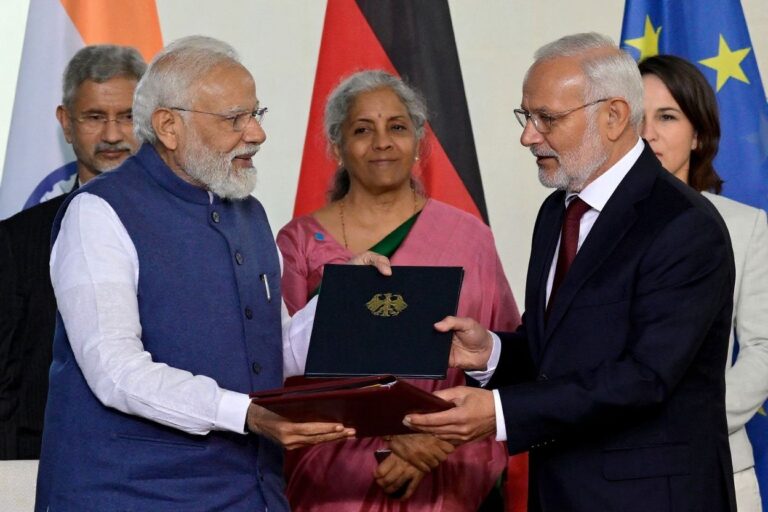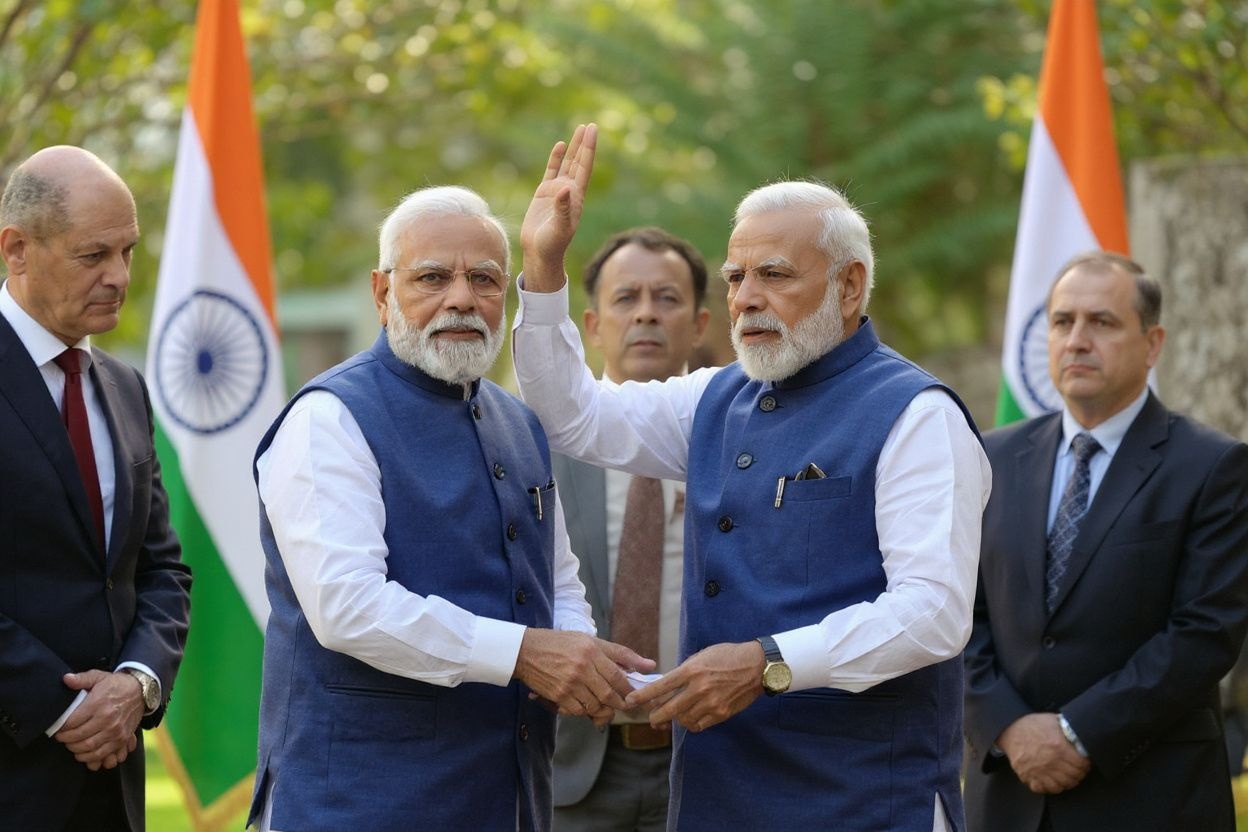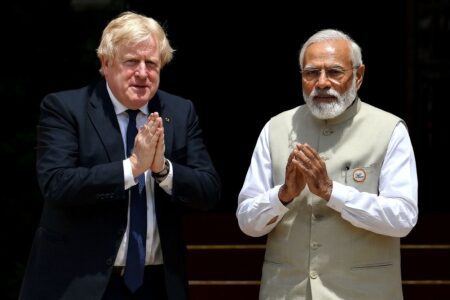
Good news for Indian students: a new Germany-India partnership to facilitate migration and mobility was recently announced, giving students, professionals, and researchers greater opportunities to travel between both countries for education and work.
Named the Comprehensive Migration and Mobility Partnership Agreement, this will enable the “mutual mobility” of individuals between India and Germany. This was part of a greater set of talks which centred around sustainable development and climate protection.
“We can use the great potential of migration and skilled workers to our mutual advantage. It is the first agreement of this kind for our country,” German chancellor Olaf Scholz said in Berlin.
“More than 17,000 Indian students take advantage of offers from German universities,” he added. “You are very welcome in Germany – even after your studies.”
The two governments also commended the “extensive” Germany-India cultural exchange and cooperative education policy.
In particular, they highlighted the roles of the Goethe-Instituts, the German Academic Exchange Service (DAAD), the University Grants Commission, and the All India Council for Technical Education in encouraging and enabling opportunities for students to move abroad for their studies.
The DAAD, founded in 1960, has a “longstanding cooperation and presence” in India, according to head of office Katja Lasch. At the moment, it operates out of its main office in New Delhi, with smaller establishments in Bangalore, Chennai, and Pune.
“Every year individual scholarships are awarded as well as cooperation projects that are funded by DAAD,” she told The PIE News. “We will continue our operation in India and hope together with our Indian partners, with whom we are running also co-founded programmes, we will further develop and strengthen ties.”
Besides providing scholarships for Indians to study in Germany, DAAD also encourages the internationalisation of higher education institutions, project funding, alumni relations, and supporting German studies in India.
“As one of the major players, we hope to take the cooperation further and use the gaining importance of internationalisation in India as a catalyst,” explained Lasch.
These government consultations would give organisations such as DAAD better “guidelines on how to strengthen and expand the Indo-German cooperation in the field of higher education and research”.
“India has been a reliable and strong partner, this is shown also in its financial engagement,” Lasch said. “The DAAD is running, with Indian institutions, co-founded programmes not just in the field of individual mobility but also for cooperation projects between universities.”
 Over 17,000 Indian students enrol in German universities, according to Scholz.
Over 17,000 Indian students enrol in German universities, according to Scholz.
Germany-India partnership: Study abroad efforts, dual degrees
Other initiatives to be introduced by the Germany-India partnership include promoting student exchange and allowing German students to be admitted to Indian universities through “Study in India” — a programme that endorses India as a prime education hub for international students — and similar programmes.
To encourage the upskill of Indian workers, the Germany-India partnership includes a commitment to pursue further cooperation on education and qualifications. This includes the digital preparatory courses, established to enable Indian students to enrol and begin their university programmes in Germany.
Efforts to encourage mobility were not only limited to Germany-India government-level agreements. Universities from both countries have endeavoured to explore methods of cooperation. This includes introducing joint or dual degrees, which the Comprehensive Migration and Mobility Partnership Agreement welcomed.
Further aspects of internationalisation will be discussed in the upcoming International Higher Education Dialogue conference in May.
“We initiated a bilateral working group on Double Degree programmes with the aim to publish a guide for double/joint degree programmes in the Germany-India context,” Lasch said. “We see our role here also in policy advice and are working with Indian partner institutions.”
 “I am confident that the decisions made today will have a positive impact on our region and the world at large,” said Indian Prime Minister Narendra Modi at a press conference for the agreement.
“I am confident that the decisions made today will have a positive impact on our region and the world at large,” said Indian Prime Minister Narendra Modi at a press conference for the agreement.
Indian skilled workers in high demand by German employers
Indian Prime Minister Narendra Modi said that the exchange of professionals from India had been a major benefit for many countries. India currently has an emerging workforce, with 64% of its population in the working-age group.
This is an extremely attractive prospect for European countries such as Germany, with a rapidly ageing population. Head of Sales Strategy at SRH Higher Education Akos Kiraly explained that a shortage of skilled workers in Germany is hampering the country’s economic growth. With this, bringing in talented and promising individuals from countries such as India is essential.
“German universities have been attracting Indian students for a number of years with a clear perspective on staying in Germany after graduation,” he told The PIE News. “The upcoming migration agreement will additionally support the popularity of German universities among Indian students because the easiest way to gain access to the German labour market is still through a solid education preferably from Germany.”
According to reports, Indians are among the most skilled professionals in certain fields, including Information Technology, Engineering, and Research and Development. This, combined with a perception that Indian workers are knowledgeable and hardworking individuals who contribute positively and significantly to their organisations, ensures that nationals from the country are in high demand worldwide.
“We anticipate a further increase for our PG programmes in the field of engineering and IT from India as these professions have the highest unfilled positions in the market,” added Kiraly.
The two governments stressed the importance of “active personal exchanges” between students, universities, and staff, agreeing to support each other in their higher education and internationalisation efforts. On top of this, Modi and Scholz committed to closely “interlock” their innovation and research areas and “strengthen the dual structures for vocational training”.
This marks the sixth intergovernmental consultation between the two countries, providing for a turning point in Germany-India relations.
“The partnership between our countries at all levels has resulted in cooperation taking a new direction, including in the area of energy and environmental protection,” said Modi. “I am confident that the decisions made today will have a positive impact on our region and the world at large.”










